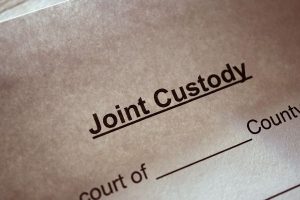When Will My Divorce Be Finalized?
 Divorce is not a decision most people come to lightly. Many couples will invest significant time—often years—trying to resolve conflicts and fix problems in relationships they believed would last a lifetime before concluding that divorce is their only answer. So by the time they reach that decision, it’s understandable that they just want the whole process to be over. But divorce doesn’t happen overnight.
Divorce is not a decision most people come to lightly. Many couples will invest significant time—often years—trying to resolve conflicts and fix problems in relationships they believed would last a lifetime before concluding that divorce is their only answer. So by the time they reach that decision, it’s understandable that they just want the whole process to be over. But divorce doesn’t happen overnight.
How long the divorce process takes depends on numerous circumstances unique to the individuals involved: Is the divorce a contentious one? Are children involved? What circumstances led up to the divorce? How many assets are involved? Even where a couple lives can impact their divorce proceedings. For more on how these and other circumstances can affect the timing of your divorce, read the Forbes Advisor article, “How Long Does A Divorce Take?”
 New Jersey Family Law Blog
New Jersey Family Law Blog











